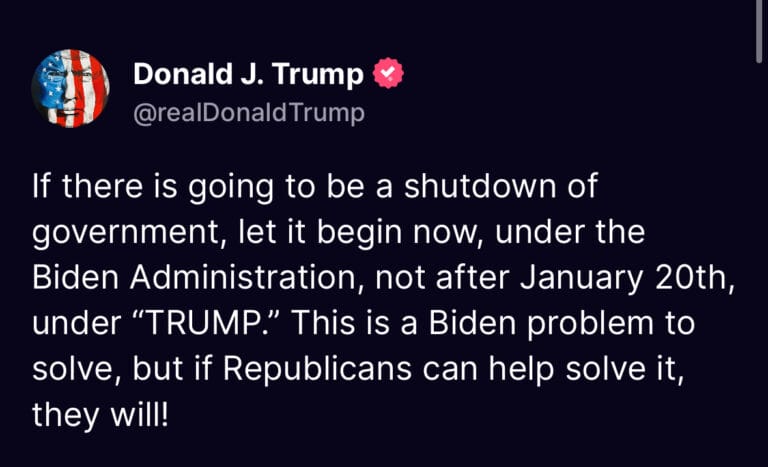President-elect Trump has announced plans to significantly reduce federal spending.
United States will cut hundreds of billions of dollars in spending next year
This statement aligns with his broader campaign promises to address what he perceives as wasteful government expenditure. Here’s a breakdown based on available information:
Historical Context: During his previous term, Trump’s administration focused on tax cuts rather than substantial spending reductions. His 2017 tax reform, for example, was intended to stimulate economic growth but increased the deficit due to lower revenue. However, his budget proposals often included significant cuts to domestic programs, including reductions to the Environmental Protection Agency, social safety nets like Medicaid, and foreign aid, which he has criticized as unnecessary or inefficient.
Current Proposals: Trump has hinted at using reconciliation, a legislative process that allows for passing budget-related legislation with a simple majority in the Senate, to enact these cuts. Posts on X from today reflect this sentiment, indicating his intention to use this method to bypass potential Congressional gridlock.
Potential Impact:
Defense and Security: Despite his promise to cut spending, defense budgets have historically seen increases under Trump, suggesting that any significant cuts might not affect military spending but rather focus on other sectors.
Entitlement Programs: There are indications from political figures close to Trump, like Vivek Ramaswamy, of potential cuts to Social Security, Medicare, and Medicaid, though these are politically sensitive areas, and drastic reductions would likely face strong opposition.
Environmental and Climate Initiatives:Trump has expressed intentions to “terminate” what he refers to as “green spending,” particularly related to the Inflation Reduction Act, which could mean reversing investments in climate change mitigation and renewable energy.
Challenges:
Legal and Political Hurdles: The Impoundment Control Act of 1974 limits the president’s ability to unilaterally withhold funds Congress has appropriated. Trump has previously expressed intentions to challenge this law’s constitutionality, which could lead to legal battles if he attempts to not spend allocated funds.
Public and Congressional Reaction: Cuts to popular programs could provoke significant backlash, both from the public and within Congress, especially if they involve benefits that many depend on.
Economic Implications: Reducing government spending can impact economic growth, depending on where cuts are made. Reducing federal expenditures might help reduce the deficit but could also slow economic activity if not managed alongside other fiscal policies.
In summary, while Trump’s statement about cutting hundreds of billions in spending is clear, the specifics of how, where, and what will be cut remain uncertain. Such policies would need to navigate through a complex web of legal, political, and economic considerations. If implemented, these cuts would likely be a focal point of debate and contention, reflecting broader discussions on fiscal responsibility versus social welfare and economic stimulation.





President-elect Trump says the “United States will cut hundreds of billions of dollars in spending next year.”